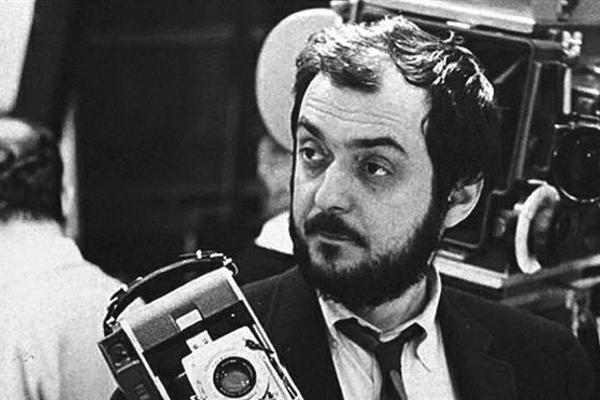Cinema discovered in 15 episodes
ISTANBUL


Istanbul Modern Cinema will host a new program ‘With the Story of Film,’ which invites viewers to a 15-hour documentary marathon tracing the entire history of world cinema.
Istanbul Modern Cinema will host a new program “With the Story of Film,” which invites viewers to a 15-hour documentary marathon tracing the entire history of world cinema from its beginnings to the present. The film, directed over the course of five years by Mark Cousins, based on his book with the same title, explores cinematic innovations while examining how filmmakers are influenced both by historical events of their time and by one another. Spanning from the early days of the silent era to the emergence of Hollywood and star system, the film covers the artistic evolution of cinema in Russia, Japan, Germany, France, Italy, Britain, Scandinavia, and the U.S. “With the Story of Film” takes the viewer on an engrossing worldwide tour of the greatest films ever made while disrupting the existing perception of European and American-centric film to offer a more global approach to the history of the “Seventh Art.”Based on the idea of writing “a more accessible, jargon-free history of film,” the documentary visits the key sites in the history of cinema and features superb archive footage, as well as interviews with legendary filmmakers and actors such as Bernardo Bertolucci, Jane Campion, Gus van Sant, Lars Von Trier, Claire Denis, Stanley Donen, and Claudia Cardinale.
The program consists of 15 episodes. In the episode titled “Birth of Cinema (1900-1920),” the director examines how cinema was born. Filmed in “movie cathedrals,” where the first movies were made, the episode shows the very first movie stars, the birth of the close-up and special effects, and how Hollywood became a myth.
In the second episode, “The Hollywood Dream (the 1920s),” shows movie makers such as Robert Flaherty, Eric Von Stroheim, and Carl Theodor Dreyer, who challenges that maintained that films should be more “serious.”
On the third episode, “Expressionism, Impressionism, Surrealism: The Golden Age of World Cinema (the 1920s),” the golden age of cinema is taken into account. From Moscow to Berlin, the episode explores directors who pushed the boundaries of the newly-discovered medium.
Episode 4: “The Arrival of Sound (the 1930s)” tells how the arrival of sound changed everything for cinema. This episode revisits film genres consisting of comedies, gangster pictures, horror films, westerns, and musicals. It also features the master of masters Howard Hawks. In episode 5, “Post-War Cinema (the 1940s),” the documentary shows how the trauma of war made cinema more daring. It moves from Italy to Hollywood, from Orson Wells, to dark American films and reflects the drama of the McCarthy era. Stanley Donen, director of “Singin’ in the Rain,” talks exclusively about his career.
From James Dean to Kubrick
“Sex and Melodrama (the 1950s),” episode 6 is predominated in movies from the 1950s. The episode starts with James Dean and commemorates the glossy titles of the period and also travels to countries such as Egypt, Mexico, and Japan to explore their movies, full of passion and rage. Episode 7:
“European New Wave (the 1960s)” is about the 60s. The Italian movie star Claudia Cardinale talks exclusively about Federico Fellini. Meanwhile, in Denmark, while Lars Von Trier describes his admiration for Ingmar Bergman, Bernardo Bertolucci recounts his work with Pier Paolo Pasolini. Episode 8: “New Directors, New Form (the 1960s)” follow the story of the dazzling 1960s in cinema around the world. Episode 9, “American Cinema of the 1970s” sees a maturing American cinema.
Episode 10, “Movies to Change the World (the 1970s),” starts in Germany with Wim Wenders, then moves to Ken Loach in Britain, continuing to the beginnings of new Australian cinema and stops in Japan. Episode 11, “The Arrival of Multiplexes and the Asian Mainstream (the 1970s)” begins by talking about the creativity of films such as “Star Wars,” “Jaws,” and “The Exorcist.” It then mentions the world’s most famous movie star, Amitabh Bachchan, and Bollywood’s new approach to film.
In Episode 12, titled “Fight the Power: Protest in Film,” the program focuses on the 80s. American independent director John Sayles talks about these years, during which Chinese cinema was blossoming in Beijing and Krzysztof Kieslowski emerged in Poland.
Episode 13: “New Boundaries: World Cinema in Africa, Asia, and Latin America,” starts in Iran with Abbas Kiarostami, while Episode 14:, features playful, flashy examples of Anglo-Saxon cinema while also looking at Tarantino’s dialogue. The final episode is the episode, in which the history of film is ends, at least for the time being.
